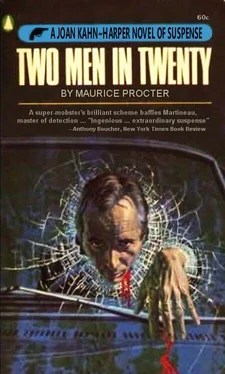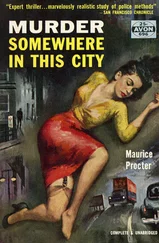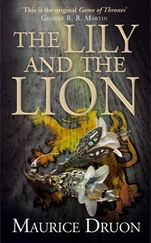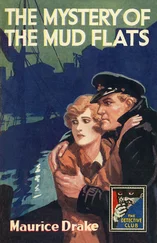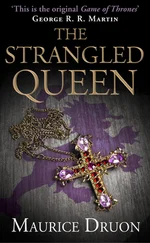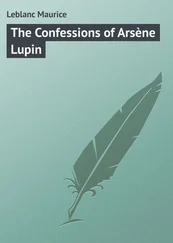Maurice Procter - Two men in twenty
Здесь есть возможность читать онлайн «Maurice Procter - Two men in twenty» весь текст электронной книги совершенно бесплатно (целиком полную версию без сокращений). В некоторых случаях можно слушать аудио, скачать через торрент в формате fb2 и присутствует краткое содержание. Год выпуска: 1963, Издательство: London : Hutchinson, Жанр: Полицейский детектив, на английском языке. Описание произведения, (предисловие) а так же отзывы посетителей доступны на портале библиотеки ЛибКат.
- Название:Two men in twenty
- Автор:
- Издательство:London : Hutchinson
- Жанр:
- Год:1963
- ISBN:нет данных
- Рейтинг книги:4 / 5. Голосов: 1
-
Избранное:Добавить в избранное
- Отзывы:
-
Ваша оценка:
- 80
- 1
- 2
- 3
- 4
- 5
Two men in twenty: краткое содержание, описание и аннотация
Предлагаем к чтению аннотацию, описание, краткое содержание или предисловие (зависит от того, что написал сам автор книги «Two men in twenty»). Если вы не нашли необходимую информацию о книге — напишите в комментариях, мы постараемся отыскать её.
Two men in twenty — читать онлайн бесплатно полную книгу (весь текст) целиком
Ниже представлен текст книги, разбитый по страницам. Система сохранения места последней прочитанной страницы, позволяет с удобством читать онлайн бесплатно книгу «Two men in twenty», без необходимости каждый раз заново искать на чём Вы остановились. Поставьте закладку, и сможете в любой момент перейти на страницу, на которой закончили чтение.
Интервал:
Закладка:
'What of it?' Coggan answered brusquely. 'We've never used a van on a job before, and the coppers won't be looking for one.'
'I suppose we'll have to use it, anyhow,' Cain growled. 'All right, let's get busy.'
Coggan went out and manoeuvred the van until its double-leaf rear door faced the back gate of No. 20, where the oxygen cylinder and the other equipment had been kept. The whole gang went into No. 20, and Cain unbarred the back gate. Coggan opened the van door, and its leaves served as screens so that no observer could see what was being put in the van. Nevertheless, two plainclothesmen watching from a distance of thirty yards were able to make an accurate guess about the whole operation. They were lying flat on the ground behind a ramshackle fence made from the wood of old orange boxes. They had exceeded instructions by moving so near, but this temerity was already showing a profit; they had been able to make out part of the inscription on the side of the van.
'I'm thankful I won't have to handle any more of these for a while,' Husker growled, as he helped to carry the oxygen cylinder. 'I'll be living the life of Riley.'
'Belt up!' Jolly snarled. 'Don't you know better nor that? Once the job has started you don't start crowin' afore the egg's been laid. You'll bring bad luck on all of us.'
Husker was shocked. Being ignorant, he was superstitious. 'I didn't know,' he said humbly. 'Nobody has said aught before.'
The oxygen, the propane, the piping and blowpipe, the protective clothing and mask, the blackout curtain and Jolly's drill were put on the floor of the van. France and Cain crowded into the front seat beside Coggan, and the other two squatted among the equipment in the back. The van moved, taking the first opening into Naylor Street and thence to Churlham Road. Flo closed and barred the back gate and returned to No. 22 where she locked herself in. For the first time in her life she was alone in a house at night, and she did not like it very much. Though she was naturally incapable of regretting any act which had given her satisfaction, she wished Dorrie had not gone away. She missed Dorrie.
Because it was coming from Naylor Street, and for no other reason, the van was noticed by the observers in Otto Neubaur's place. As it turned to enter Churlham Road one detective said to the other: 'Williams the Florist. Can you spot the number?'
The two men behind the fence remained still for a minute or two after the van had gone, because they were afraid that somebody might be watching from a dark back bedroom. When they had stared long enough and detected no movement and no white blur of a face, they withdrew carefully to a place where they could use their field radio. So it was that the van had travelled a good mile on its way before the officers waiting at Police Headquarters were informed that thieves were using it. The description was: 'A pale yellow van, about thirty hundredweight, make not known, number not known. On the side of the van is "Somebody the Florist". The name could not be deciphered without going too near.'
On receiving this information Martineau got in touch with the men at Neubaur's, asking about the van. He was told that the inscription on the van was 'Williams the Florist' in red lettering, and that its direction had been along Churlham Road towards the city centre.
He called back the Information Room, and said: 'You got that? Williams the Florist. Put out the word.'
At once, at strategic points throughout the city, red lights began to flash on and off, calling the policemen on the streets to the police telephones. They were given the news. Then, standing in doorways and shadowed places, they watched for the van. Also, the prowling patrol cars were informed by radio. They switched off their 'Police' signs and withdrew from the main roads, to watch from side streets. The van was to be allowed to go on its way without interference.
Martineau went along to the Information Room, and there he was joined by Clay. Clay said: 'This is it. If we haven't collared the lot of 'em within the hour, we never will.'
Three minutes later there was news about the van. It had been seen in Bishopsgate at 9.5 P.M., going in the direction of the North Central Station. There had been three men in the front seat. Two minutes later there was another message. The van had been seen in Crossway Street, passing the cathedral.
Behind the cathedral there was a big industrial area. 'Not far to go now,' Martineau said.
Clay shook his head. 'We don't know yet. They might be cruising round a bit, to make sure nobody is on their tail. I'm not making a move till I know something definite.'
Martineau did not argue, but he held to his own opinion. He had concluded that the break, when it came, would be in A Division, which was his own. He issued an order for the available men of his own squad to be ready in the police-station yard, sitting in two cars, waiting for the word to go.
Then came the news that 'Williams the Florist' had been seen to turn off and go along Archer Street, an important business artery which carried heavy traffic in the daytime. Behind Archer Street, on both sides, the warehouses and factories loomed. Martineau sighed with a touch of exasperation as he thought about them: the Aladdin's caves of modern times, storehouses of riches which could be opened by the easy sesame of one Jimmy the Gent.
'Somewhere around there, then?' he queried, but Clay was silent.
The news came that the van had turned off Archer Street into Aire Street, and had disappeared along there, probably by turning another corner.
Martineau saw Aire Street in his mind's eye. In the past he had worked the beat around there, and he had known every building, every backyard, every door and vulnerable window. He had seldom been far away from it since then, and he could remember most of it.
'What have we there?' he wondered aloud. 'There's College Street. College Street? Maxim's warehouse, but they've got watchmen, I believe. Then there's Holroyd's furniture place. Oh, and there's Haddon and Walker's.' He looked at Clay. 'Haddon and Walker's,' he repeated.
Clay nodded. 'A good spot for cash,' he said, but he made no move.
Martineau took a deep breath, and was silent thereafter. The next period of waiting was comparatively long, more than five minutes, and then there was news which was more definite. The van was in Archer Street again, having emerged from Rutland Street. It was retracing its route now, and there appeared to be no one in it but the driver.
'They're in, somewhere,' Martineau said. 'Somewhere around College Street.'
Again Clay nodded. 'Their wheel man will come back for them at a set time. And when he comes, he'll be very much on the alert. I can't cordon the area so long as he's cruising around, so we'll move the boys and girls in for a start.'
He gave an order, and very soon four plain cars packed with young policemen and policewomen in plain clothes left the police-station yard and headed for the Archer Road area. They separated, and their passengers alighted in pairs at points around the area. The instructions to these pairs were that they should pretend to be courting couples, but not pretend with too much realism. They crossed the area in all directions, strolling like lovers. It was presumed that, if necessary, they could stand together in dark corners without attracting suspicious notice. Each couple knew where the cars were waiting, so that they could relay a radio message within minutes if the need arose.
After that there was fifteen minutes of suspense, until the news came that the florist's van was parked in a passage beside the Marquis of Granby Inn, in Granby Street.
'He's having a drink to pass the time,' Martineau said. 'His next journey will be back to College Street.'
'It will, if they aren't using two vehicles,' Clay agreed. 'Anyway, we'll set the job going.'
Читать дальшеИнтервал:
Закладка:
Похожие книги на «Two men in twenty»
Представляем Вашему вниманию похожие книги на «Two men in twenty» списком для выбора. Мы отобрали схожую по названию и смыслу литературу в надежде предоставить читателям больше вариантов отыскать новые, интересные, ещё непрочитанные произведения.
Обсуждение, отзывы о книге «Two men in twenty» и просто собственные мнения читателей. Оставьте ваши комментарии, напишите, что Вы думаете о произведении, его смысле или главных героях. Укажите что конкретно понравилось, а что нет, и почему Вы так считаете.
